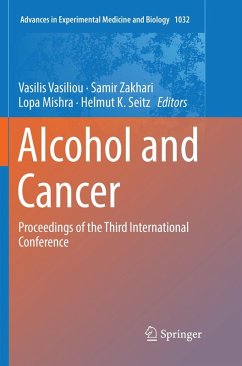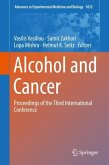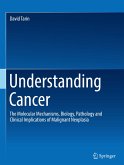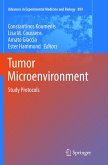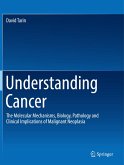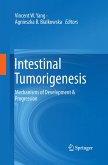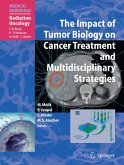Alcohol and Cancer
Proceedings of the Third International Conference
Herausgegeben:Vasiliou, Vasilis; Zakhari, Samir; Mishra, Lopa; Seitz, Helmut K.
Alcohol and Cancer
Proceedings of the Third International Conference
Herausgegeben:Vasiliou, Vasilis; Zakhari, Samir; Mishra, Lopa; Seitz, Helmut K.
- Broschiertes Buch
- Merkliste
- Auf die Merkliste
- Bewerten Bewerten
- Teilen
- Produkt teilen
- Produkterinnerung
- Produkterinnerung
Following the Third Alcohol and Cancer Conference, this volume compiles the most up-to-date research on the role of alcohol consumption in carcinogenesis, from epidemiology to pathology metabolism and stem cells. More specifically, it delves into the effects of alcohol consumption and thyroid cancer, CD133+ progenitor cells, carcinogenic iron accumulation, developmental morphogens, and cancer-inducing epigenetic changes.
Alcohol and Cancer: Proceedings of the Third International Conference is a timely update to Biological Basis of Alcohol-Induced Cancer, which followed the Second Alcohol…mehr
Andere Kunden interessierten sich auch für
![Alcohol and Cancer Alcohol and Cancer]() Alcohol and Cancer154,99 €
Alcohol and Cancer154,99 €![Essential and Non-essential Metals Essential and Non-essential Metals]() Essential and Non-essential Metals116,99 €
Essential and Non-essential Metals116,99 €![Understanding Cancer Understanding Cancer]() David TarinUnderstanding Cancer235,39 €
David TarinUnderstanding Cancer235,39 €![Tumor Microenvironment Tumor Microenvironment]() Tumor Microenvironment116,99 €
Tumor Microenvironment116,99 €![Understanding Cancer Understanding Cancer]() David TarinUnderstanding Cancer169,99 €
David TarinUnderstanding Cancer169,99 €![Intestinal Tumorigenesis Intestinal Tumorigenesis]() Intestinal Tumorigenesis116,99 €
Intestinal Tumorigenesis116,99 €![The Impact of Tumor Biology on Cancer Treatment and Multidisciplinary Strategies The Impact of Tumor Biology on Cancer Treatment and Multidisciplinary Strategies]() Michael Molls / Peter Vaupel / Carsten et al. Nieder (Volume editor)The Impact of Tumor Biology on Cancer Treatment and Multidisciplinary Strategies116,99 €
Michael Molls / Peter Vaupel / Carsten et al. Nieder (Volume editor)The Impact of Tumor Biology on Cancer Treatment and Multidisciplinary Strategies116,99 €-
-
-
Following the Third Alcohol and Cancer Conference, this volume compiles the most up-to-date research on the role of alcohol consumption in carcinogenesis, from epidemiology to pathology metabolism and stem cells. More specifically, it delves into the effects of alcohol consumption and thyroid cancer, CD133+ progenitor cells, carcinogenic iron accumulation, developmental morphogens, and cancer-inducing epigenetic changes.
Alcohol and Cancer: Proceedings of the Third International Conference is a timely update to Biological Basis of Alcohol-Induced Cancer, which followed the Second Alcohol and Cancer Conference, compiling cutting-edge research from graduate students, young scientists, and researchers. It is ideal for graduate students and researchers in oncology, hepatology, epigenetics, and alcohol consumption.
Alcohol and Cancer: Proceedings of the Third International Conference is a timely update to Biological Basis of Alcohol-Induced Cancer, which followed the Second Alcohol and Cancer Conference, compiling cutting-edge research from graduate students, young scientists, and researchers. It is ideal for graduate students and researchers in oncology, hepatology, epigenetics, and alcohol consumption.
Produktdetails
- Produktdetails
- Advances in Experimental Medicine and Biology 1032
- Verlag: Springer / Springer International Publishing / Springer, Berlin
- Artikelnr. des Verlages: 978-3-030-07531-6
- Softcover reprint of the original 1st edition 2018
- Seitenzahl: 284
- Erscheinungstermin: 3. Januar 2019
- Englisch
- Abmessung: 235mm x 155mm x 16mm
- Gewicht: 438g
- ISBN-13: 9783030075316
- ISBN-10: 3030075311
- Artikelnr.: 57823343
- Herstellerkennzeichnung Die Herstellerinformationen sind derzeit nicht verfügbar.
- Advances in Experimental Medicine and Biology 1032
- Verlag: Springer / Springer International Publishing / Springer, Berlin
- Artikelnr. des Verlages: 978-3-030-07531-6
- Softcover reprint of the original 1st edition 2018
- Seitenzahl: 284
- Erscheinungstermin: 3. Januar 2019
- Englisch
- Abmessung: 235mm x 155mm x 16mm
- Gewicht: 438g
- ISBN-13: 9783030075316
- ISBN-10: 3030075311
- Artikelnr.: 57823343
- Herstellerkennzeichnung Die Herstellerinformationen sind derzeit nicht verfügbar.
Vasilis Vasiliou is the Susan Dwight Bliss Professor of Epidemiology and Chair of the Department of Environmental Health Sciences at Yale School of Public Health. He received his BSc in Chemistry (1983) and PhD in Biochemical Pharmacology (1988) from the University of Ioannina, Greece. He then trained in gene-environment interactions, molecular toxicology and pharmacogenetics at the University of Cincinnati College of Medicine at the (1991-1995). In 1996, he joined the faculty of the University of Colorado School of Pharmacy where he rose through the ranks to become Professor and Director of the Toxicology Graduate Program. In July 2014, he joined the faculty of Yale University in his new position. His research interests include alcohol metabolism and toxicity, cellular responses to oxidative stress, gene-environment interactions, and pharmacogenetics. Samir Zakhari, is currently the Senior Vice President, Science, at the Distilled Spirits Council since he joined in October 2012. Previously, he spent 28 years at the National Institutes of Health, most recently as Director of Divisions of Basic Research, and Metabolism and Health Effects at the National Institute on Alcohol Abuse and Alcoholism. He obtained his Bachelor and Master degrees from Cairo University in Pharmacy and Pharmaceutical Chemistry, respectively. Subsequently, he obtained a Ph.D. in Pharmacology from the Czechoslovak Academy of Sciences, and then joined the Department of Pharmacology at the University of Pennsylvania, School of Medicine. He has over 40 years of research experience in the fields of pharmacology, toxicology, biochemistry, pharmaceutical chemistry, physiology, genetics, and molecular and cell biology. He authored and co-authored numerous articles about alcohol and cancer, and co-edited two books on the same subject published by Springer. Lopa Mishra, is currently Professor and Director, Center for Translational Medicine, Department of Surgery, George Washington University from 2015 where she moved from Houston Texas. Dr. Mishra was at MD Anderson from December 2009 until 2015, as Professor and Chair of Gastroenterology, Hepatology and Nutrition. After graduation from the University of London, she completed her residency at Mt. Sinai in New York and Fellowship at Johns Hopkins where she was a junior faculty member. Dr. Mishra's research is in TGF-ß signaling and the role of alcohol in cancer stem cells in liver and gastrointestinal cancer, with a focus on developing new prevention and treatment strategies. Helmut Karl Seitz is Distinguished Professor of Internal Medicine, Gastroenterology and Alcohol Research, Director of the Centre of Alcohol Research (CAR) at University of Heidelberg, and Clinical Director at Salem Medical Centre, Heidelberg, Germany. He received his MD Degree (1975) from the University of Heidelberg, was a Research Fellow at the Alcohol Research andTreatment Centre, Mount Sinai Medical Centre, New York (1977-1979) and joined the Human Nutrition Centre at Tufts University, Boston in1986 and1991. Since 1977 his interest is focused on basic and clinical research in alcohol metabolism and toxicity involved in alcoholic liver disease and alcohol mediated carcinogenesis.
Alcohol Consumption and Risk of Thyroid Cancer: A Population Based Case-Control Study in Connecticut.- Roles of Cytochrome P450 in Metabolism of Ethanol and Carcinogens.- Glutathione and Transsulfuration in Alcohol-associated Tissue Injury and Carcinogenesis.- Fatty liver disease and hepatocellular carcinoma: The pathologist's view.- Alcoholic liver disease accelerates early hepatocellular cancer in a mouse model.- Chronic ethanol consumption and generation of etheno-DNA adducts in cancer-prone tissues.- Role of TGF-beta in Alcohol-Induced Liver Disease.- NANOG-dependent metabolic reprogramming and symmetric division in tumor-initiating stem-like cells.- Diet supplementation with soy protein isolate, but not the isoflavone genistein, protects against alcohol-induced tumor progression in DEN-treated male mice.- ALDH1L1 and ALDH1L2 folate regulatory enzymes in cancer.- Developmental Morphogens & Recovery from Alcoholic Liver Disease.- Suppressed fat mobilization due to PNPLA3 rs738409 -associated liver damage in heavy drinkers: The liver damage feedback hypothesis.- Aldo-Keto Reductases: Multifunctional Proteins as Therapeutic Targets in Diabetes and Inflammatory Disease.- Engineered animal models designed for investigating ethanol metabolism, toxicity and cancer.- Index.
Alcohol Consumption and Risk of Thyroid Cancer: A Population Based Case-Control Study in Connecticut.- Roles of Cytochrome P450 in Metabolism of Ethanol and Carcinogens.- Glutathione and Transsulfuration in Alcohol-associated Tissue Injury and Carcinogenesis.- Fatty liver disease and hepatocellular carcinoma: The pathologist's view.- Alcoholic liver disease accelerates early hepatocellular cancer in a mouse model.- Chronic ethanol consumption and generation of etheno-DNA adducts in cancer-prone tissues.- Role of TGF-beta in Alcohol-Induced Liver Disease.- NANOG-dependent metabolic reprogramming and symmetric division in tumor-initiating stem-like cells.- Diet supplementation with soy protein isolate, but not the isoflavone genistein, protects against alcohol-induced tumor progression in DEN-treated male mice.- ALDH1L1 and ALDH1L2 folate regulatory enzymes in cancer.- Developmental Morphogens & Recovery from Alcoholic Liver Disease.- Suppressed fat mobilization due to PNPLA3 rs738409 -associated liver damage in heavy drinkers: The liver damage feedback hypothesis.- Aldo-Keto Reductases: Multifunctional Proteins as Therapeutic Targets in Diabetes and Inflammatory Disease.- Engineered animal models designed for investigating ethanol metabolism, toxicity and cancer.- Index.

